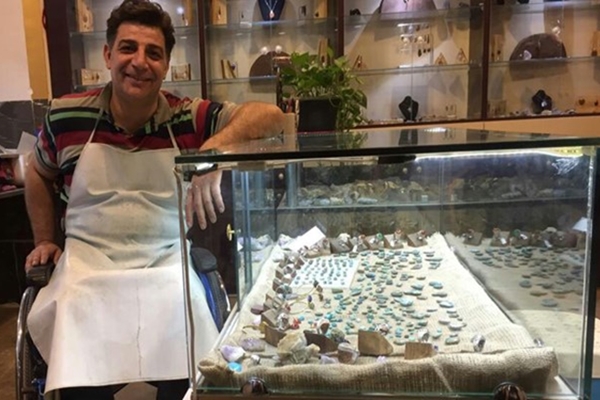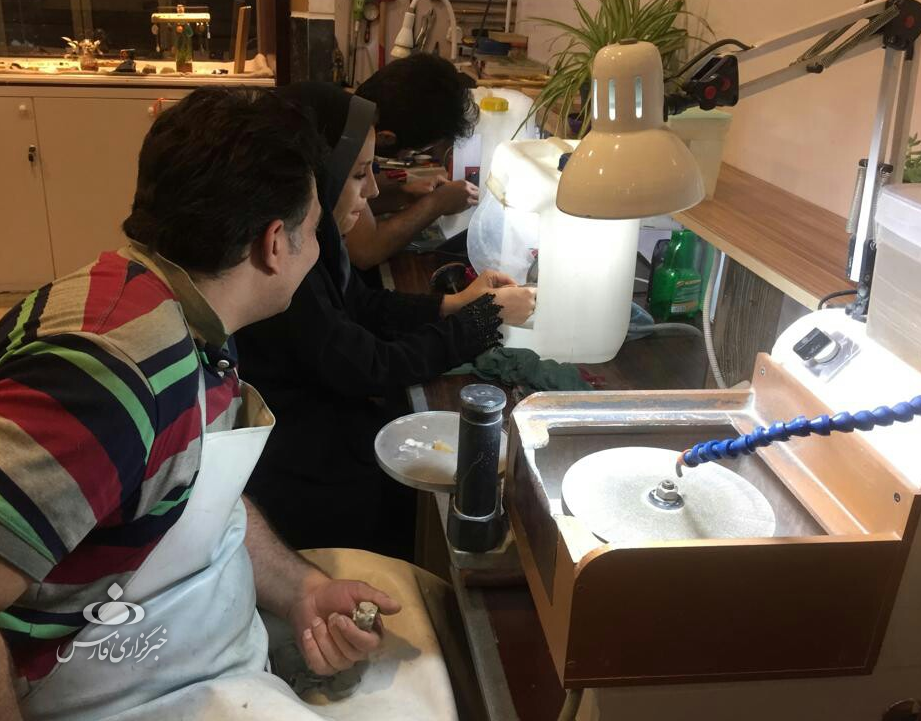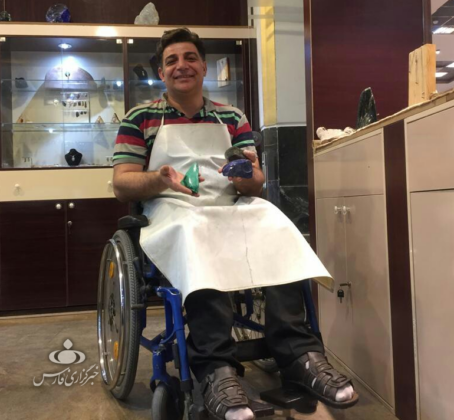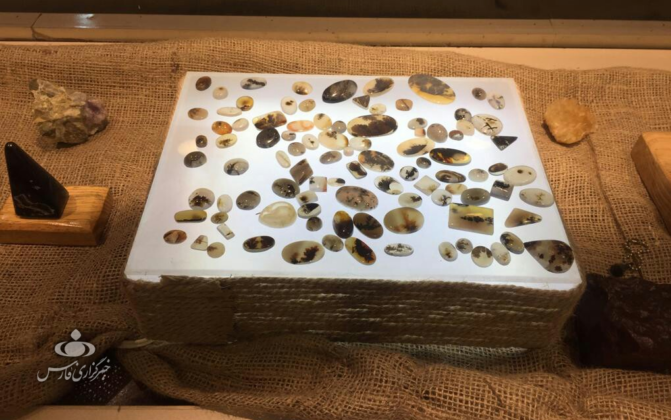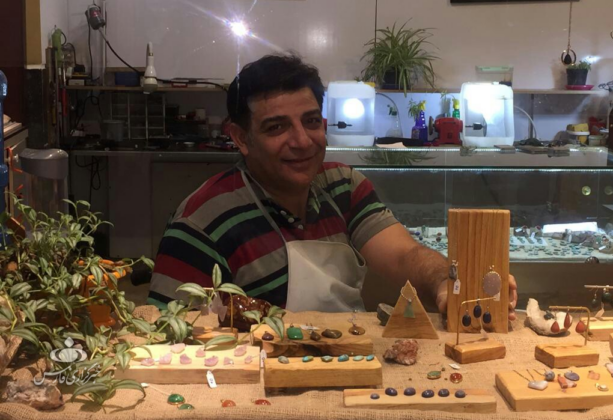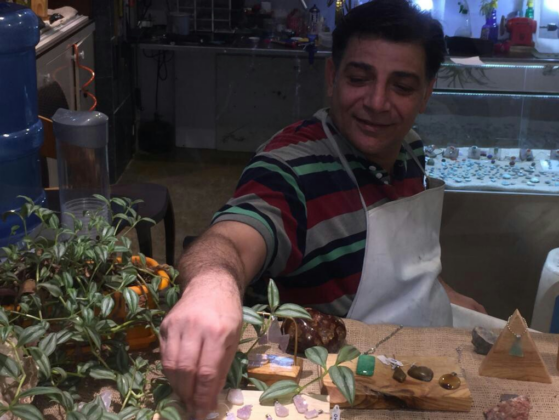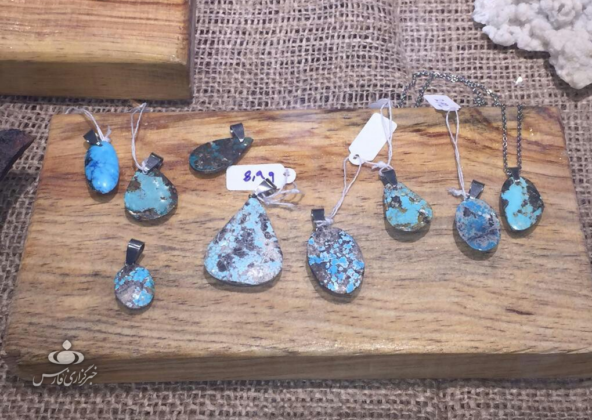Hamid-Reza Jaberi suffers from disability at the legs and has been living with the disabled for years.
So far, dozens of disabled people have found jobs and managed to earn a living thanks to his efforts. He has arranged for the marriage of hundreds of individuals suffering from spinal cord injuries. He has held wedding ceremonies for them and served as their best man.
Hamid-Reza Jaberi is now a well-known name among the disabled. His stone cutting workshop at Ferdowsi International Trade Centre in downtown Tehran is famous, too. He is not well-known only inside the county. Jaberi’s presence at a handicrafts exhibition held by the Ministry of Foreign Affairs drew the attention of ambassadors and VIPs from different countries. A few months ago, he travelled to the Azerbaijan Republic as the “messenger of hope” at the invitation of the country’s ambassador to address the disabled in Azerbaijan about hope to live and make more efforts in life.
In his workshop, stones are cut into beads for necklaces and pieces of jewel for rings. The doors of this workshop are open to disabled apprentices, who are trained for free at the workshop.
Jaberi tells the Fars News Agency the story of his life.
“I was a successful welder in Tehran. Welding work at many high-rise buildings in Tehran was done by a team of experts working under my supervision. Finally in 1999, my relatives and I went on a trip and had a road accident on the way back home when my spinal cord was severed. I found myself in hospital when I opened my eyes. They hadn’t told me what had happened to me. They kept saying I would be OK, and that it would only take some time to recover. But the reality was that I would never regain my health,” he says.
“No one would see me. I had sold my house and I had no income. At last, I had to sell my fridge, carpets and TV set. I had become angry and irritable. At that time, even my wife wouldn’t like to see me and she left me for the sake of my daughter, who was suffering from severe emotional trauma because of my accident. I was going through tough days. My legs were numb and I couldn’t feel anything. One night, insects had gathered on one of my legs. It was such a terrible scene that I cannot describe it. I called God wholeheartedly, and I promised myself to save my life and begin to cherish hope,” he says.
“My apartment was on the fourth floor and we had no lifts! The following night, I decided after 9 months to leave home. I managed to come down all the way from the fourth floor to the ground floor. I don’t know how many hours it took, and finally I shouted and asked help from neighbours. My neighbours were surprised when they saw me like that. They didn’t know my spinal cord had been severed. They helped me. They talked to the local supermarket, and its owner agreed to let me work as a street vendor in front of the supermarket,” he adds.
“Every morning, neighbours would put me on their shoulders and brought down from the fourth floor. And they would take me back home every night. I was feeling a little bit better, but people’s feeling pity for me really annoyed me. So, I decided to quit working as a street vendor. I got a loan, bought CD recording equipment and opened a shop. At the same time, I worked as a taxi driver. My hope for living had increased. My wife and children returned home and I saw happiness in life again,” says Jaberi.
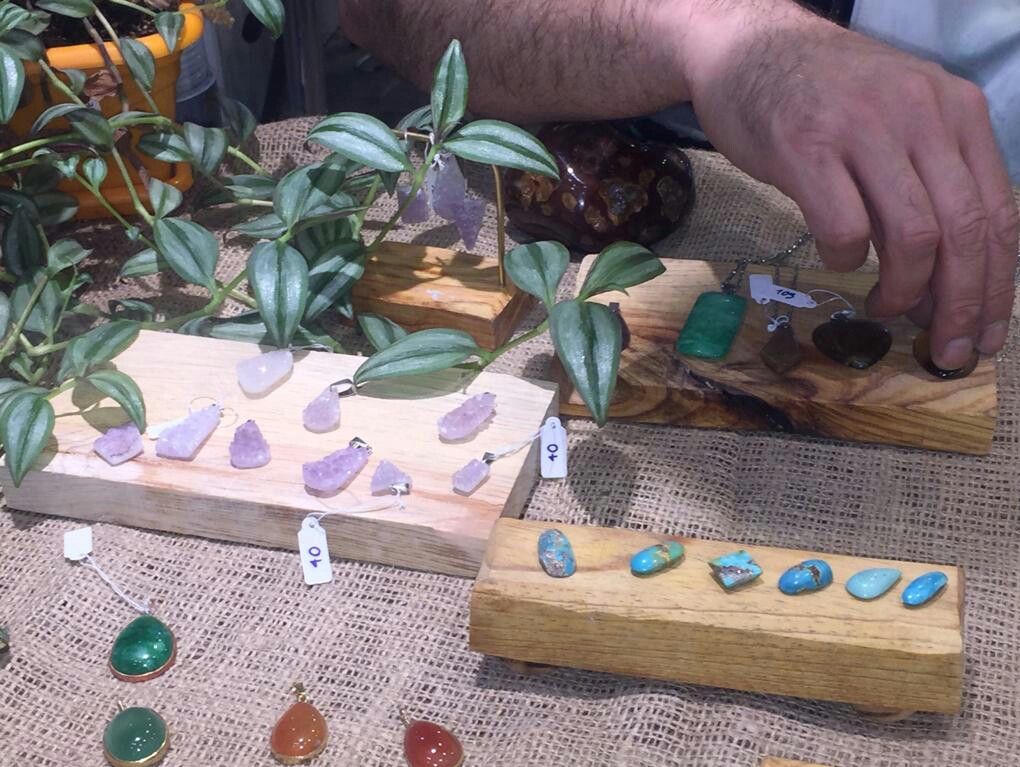
“Then I began to help people with severed spinal cords. I made every effort to help disabled people with severed spinal cords get out of isolation. Afterwards, I opened a small workshop around Tehran and employed a number of disabled people who were in the worst emotional conditions. I opened an association in a southern neighbourhood of Tehran to support disabled people with spinal cord injuries, so that I would be able to take care of their problems. Then we set up a data bank gathering information about disabled people with spinal cord injuries,” he says.
“I was so much busy solving the problems of people with disabilities that a few years ago, the then head of the Rehabilitation Organization asked me to work as an advisor to a lawmaker who was a member of Parliament’s Disabled Caucus. Good things happened at that time and I made disabled people’s voices heard by officials. I did whatever you may think of, and now I’ve got where I am now. I entered the strange world of stones and continued to create jobs in the field of stone cutting,” he says.
1,400-km Drive to Lut Desert
“It is so enjoyable to look for stones in nature that you will lose track of time once you get involved in this work. First, I went to middlemen to get the stones I need. They would sell stones at prices 5 times that of real prices. As I am disabled and cannot go to the Tehran Market like ordinary people to get the equipment I need, I decided to get part of the instruments I needed by myself. So, my wife and daughter and I go to the heart of the desert. I remember once I drove 1,400 kilometres to get to the Lut Desert in the first months to get some decorative stones I needed. It is easier than you think to find decorative stones in the desert. You only need to be familiar with different types of stone,” he notes.
Products at Jaberi’s Stone Cutting Workshop Win Int’l Fame
After Jaberi took part at the handicrafts expo held by the Iranian Ministry of Foreign Affairs, foreign guests bought many of the products made at his workshop. Now, his products have changed hands and travelled not only across many Iranian cities, but overseas as well and they are popular in other countries. His products were showcased at exhibits in Spain and Turkey as well. Many disabled people have been trained and been able to earn a living over the past several years. The door of this workshop is open to all disabled people.
